Junior Rangers in Frederikshavn Municipality
Formidlingskonsulent & Naturvejleder Junior Ranger in Frederikshavn Municipality
Junior Rangers in Frederikshavn Municipality have a number of great activities they can choose from in order to help preserve the environment. A well thought out program, combined with the love for nature, and commitment to forwarding the knowledge to the youth turned out to be the perfect recipe for a big number of interested candidates.
At the Municipality of Frederikshavn in 2017, the Department for Parks and Roads made a targeted concept with Junior Rangers as volunteer helpers in municipal woods and natural areas. The concept is aimed at children and adolescents residing in Frederikshavn Municipality.
Being involved with nature
Junior Rangers help at Nature Reserves, National Parks, and natural areas. They can be voluntary guides, help with footbridges, signs, feed wildlife in the winter, count bats and much more.
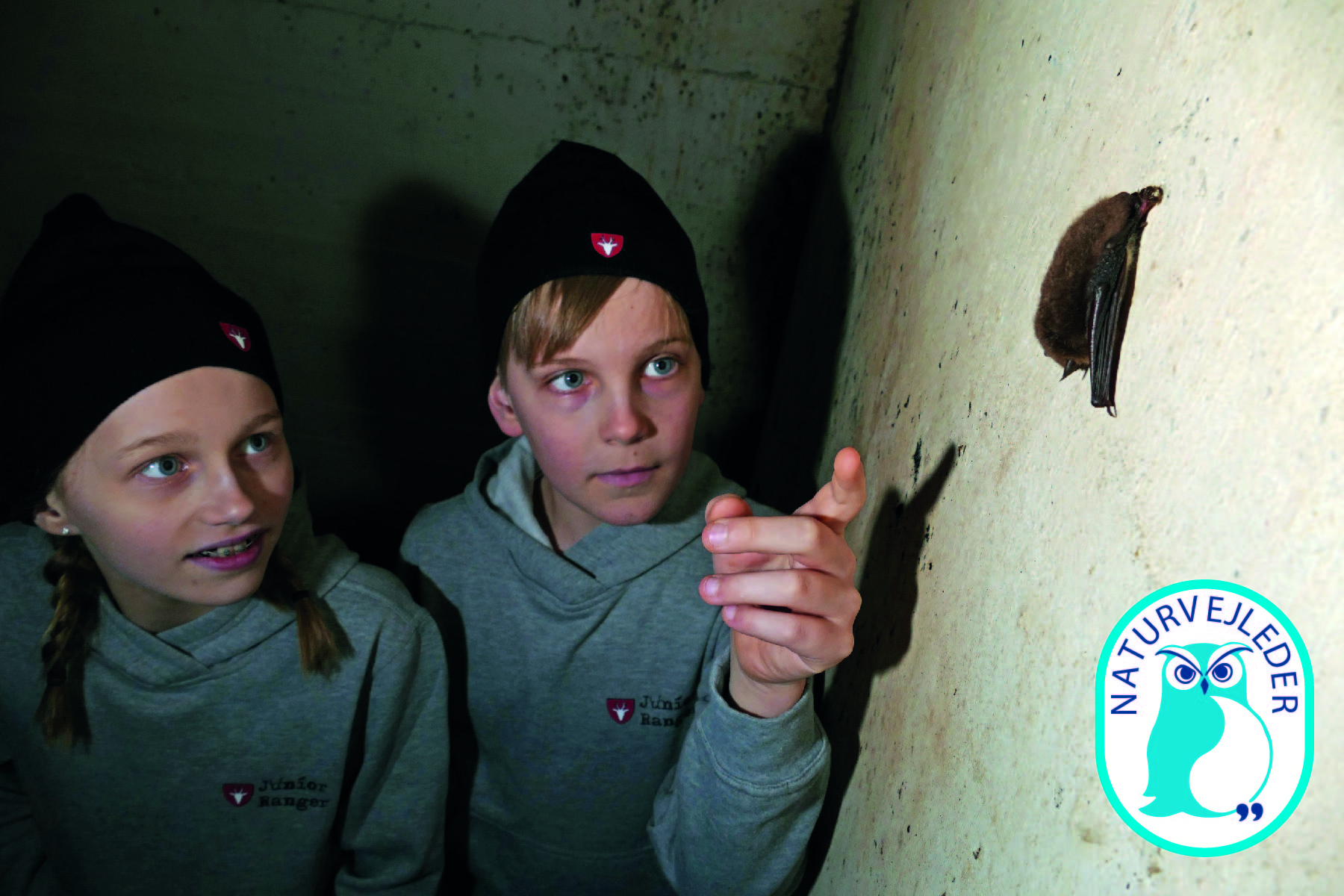
Formidlingskonsulent & Naturvejleder Junior Ranger in Frederikshavn Municipality
The overall objective is to teach youngsters the importance of preserving and caring for nature, and for them to become ambassadors of nature. Every year, education is provided for 20 young people, and there is always a high number of those who want to become Junior Rangers.
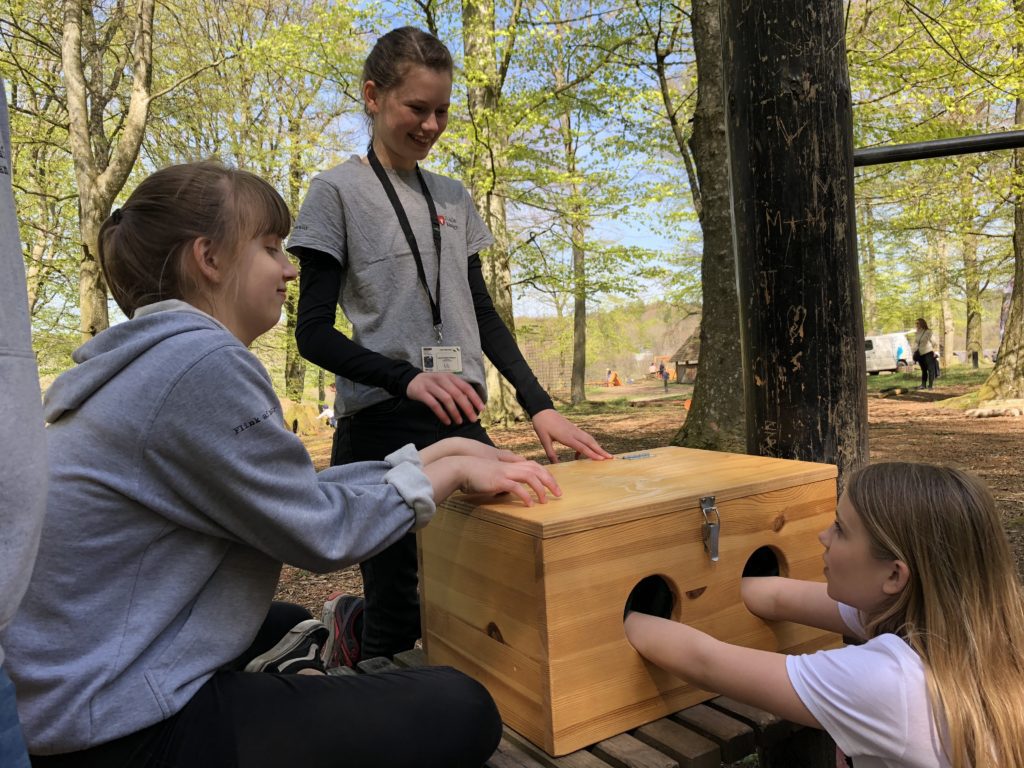
Formidlingskonsulent & Naturvejleder Junior Ranger in Frederikshavn Municipality
What they want to achieve
The children shall:
- Learn how to communicate nature, biodiversity and the use/protection of natural areas.
- Learn about nature all over the world.
- Support municipal events in municipal woods and areas of natural beauty.
- Help educate other youngsters in schools and elsewhere.
- Be ambassadors for nature in Frederikshavn Municipality.
- Join other Junior Rangers on an international level.
The basis for the project is to teach children:
- The basic knowledge of nature’s context.
- Special knowledge of wildlife and flora in the Danish countryside.
- Considerations on the use of nature.
- Ownership of nature.
The younger the children are, the more experiential learning is required, and other educational objectives will be pushed to the background slightly, and this interpretation is based on years of knowledge and experience.
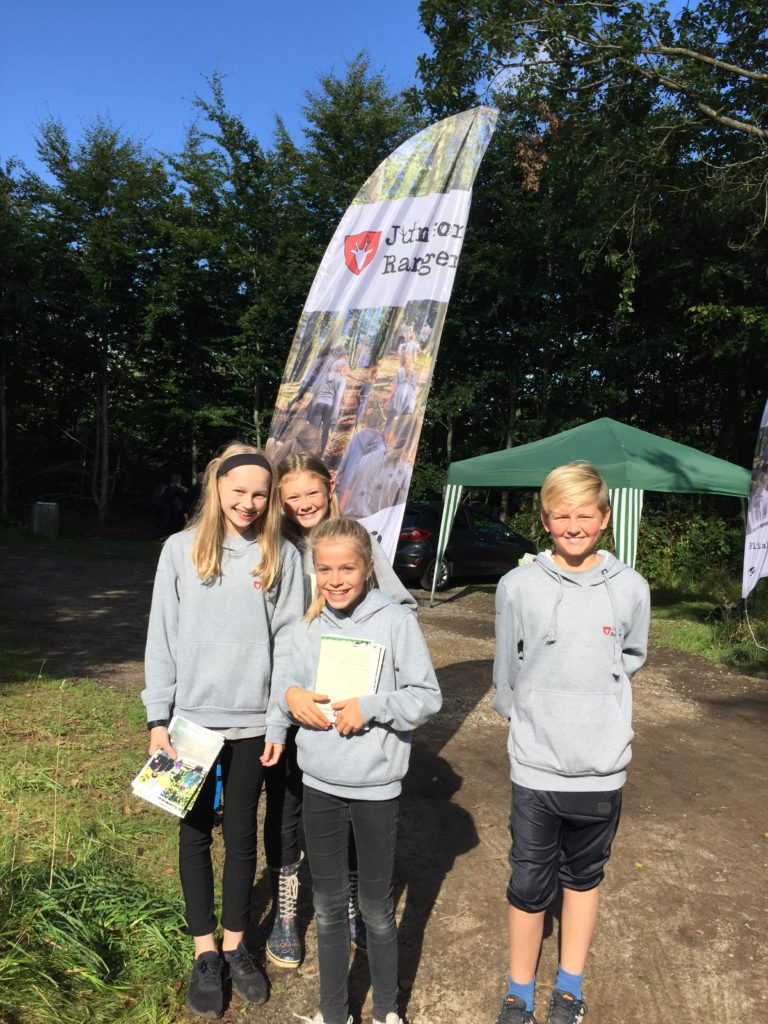
Formidlingskonsulent & Naturvejleder Junior Ranger in Frederikshavn Municipality
The integration and construction of knowledge must occur in an open and dynamic process. Different education modules and educational theory and practice must contribute to providing new knowledge and developing natural science so that the children’s understanding of nature is built up step-by-step.
Content and target group
The first contact between the children and the teachers (Rangers and park staff) occurs after an in-depth introduction. Then the children’s knowledge is built up with different kinds of games, knowledge about animals through information trips, visits to conservators, games in nature, overnight trips, wild food and many different types of learning techniques that will be slightly dependent on the composition of the group.
The first team of Junior Rangers in Frederikshavn Municipality consists of 10 girls and 10 boys from 10-13-years-old. The age group is selected based on experience with the group and their ability to “learn”. The older Junior Rangers help to teach the new Junior Rangers about nature. The target group of 15-16-year-olds will also have the opportunity to participate in the International Junior Ranger Camp that is organized and coordinated by Europarc. You can learn more about it here!
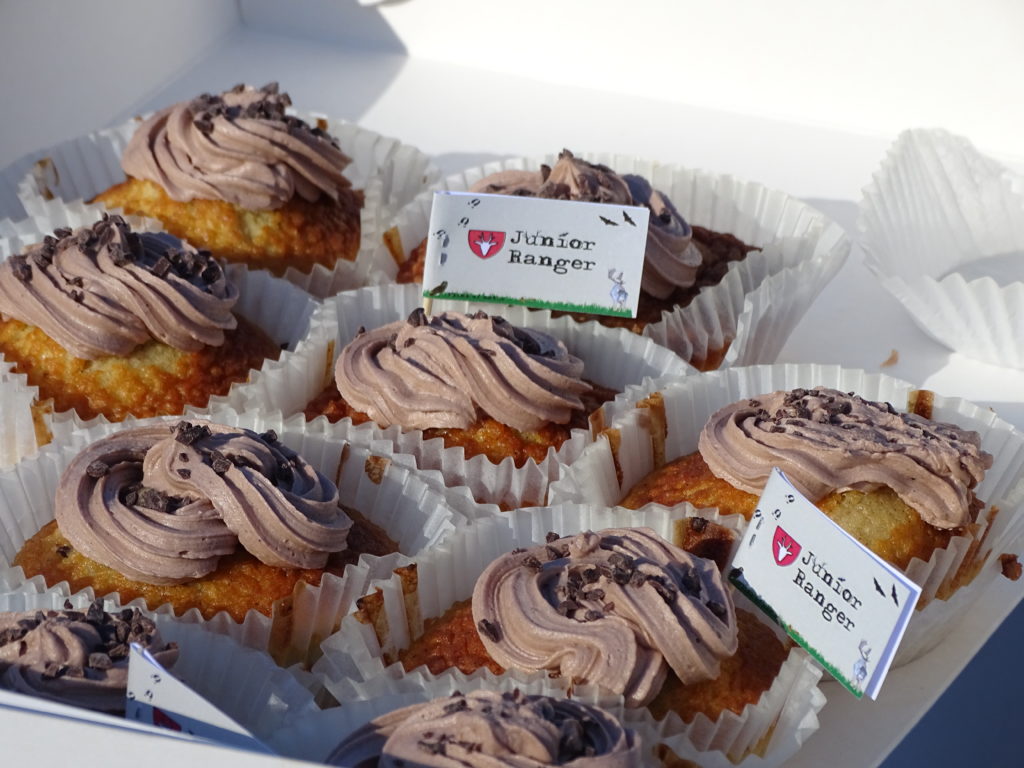
Formidlingskonsulent & Naturvejleder Junior Ranger in Frederikshavn Municipality
Natural Capital 2019 – join the seminar on March 12th in Glasgow
Natural capital: rural and urban
As part of an ongoing partnership with the Landscape Institute, EUROPARC Atlantic Isles are jointly organising a CPD seminar on Natural Capital where Ignace Schops, EUROPARC President and Sarah Bryan from Exmoor National Park are some of the speakers.
Members of EUROPARC Atlantic are able to access this event at a discounted rate with a code that can be obtained from Anita Prosser.
The early bird rate finishes on 26th February 2019. There may be some free places for National Park members.
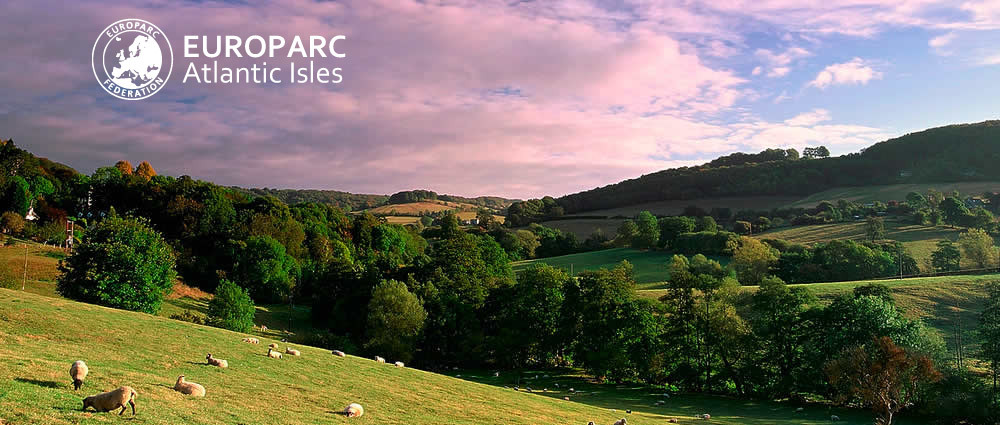
Europarc Atlantic Isles
The Event
Natural capital – What’s the opportunity?
Get a new perspective on natural capital – and hear how you can utilize it in your practice.
Continuing the theme and thinking of the LI’s Valuing Landscape Conference 2018, this day of CPD seminars and practical workshops asks the questions that are most pertinent to practitioners today:
- Where are the investment opportunities and new areas of work?
- What are the most robust natural capital assessment methods?
- What’s the opportunity, for your business and for our sector?
Turn the theory into practice: Win new business, achieve positive change, and encourage investment in landscape on a local and national scale.
Be ahead of the curve
The government is already emphasizing a shift to the ‘net gain’ approach and outlining how it will measure the success of its 25 Year Environment Plan. Learn how to demonstrate from day 1 why your work is vital.
New work opportunities
Find out not just what is valuable, but how to value it. Environmental economics presents a huge opportunity for landscape professionals to learn new skills and win new business.
Get hands-on experience
Participate in practical, interactive workshops. Get to grips with the tools and resources available for natural capital accounting, and discover how to engage wider audiences and influence positive behavioral change using the concept of the National Park City.
Meet leading thinkers and practitioners
Enjoy a day of discussion, exchange and collaboration with leaders and peers in land and landscape management, planning, ecology and more.
Further information can be found here: https://www.landscapeinstitute.org/event/licpdday-glasgow-2019-natural-capital/
Sustainable Tourism Meeting in Greece: Parks in Europe looking for a Sustainable Response to Tourism
Tzoumerka
From April 9th – 11th Paramanta town, Greece will be the meeting point for professionals working and interested in sustainable tourism. Technicians working in European nature and national parks, as well as businesses and tour operators, will join the XI Charter Network Meeting to discuss how to provide a sustainable response to the social and cultural challenges that tourism brings.
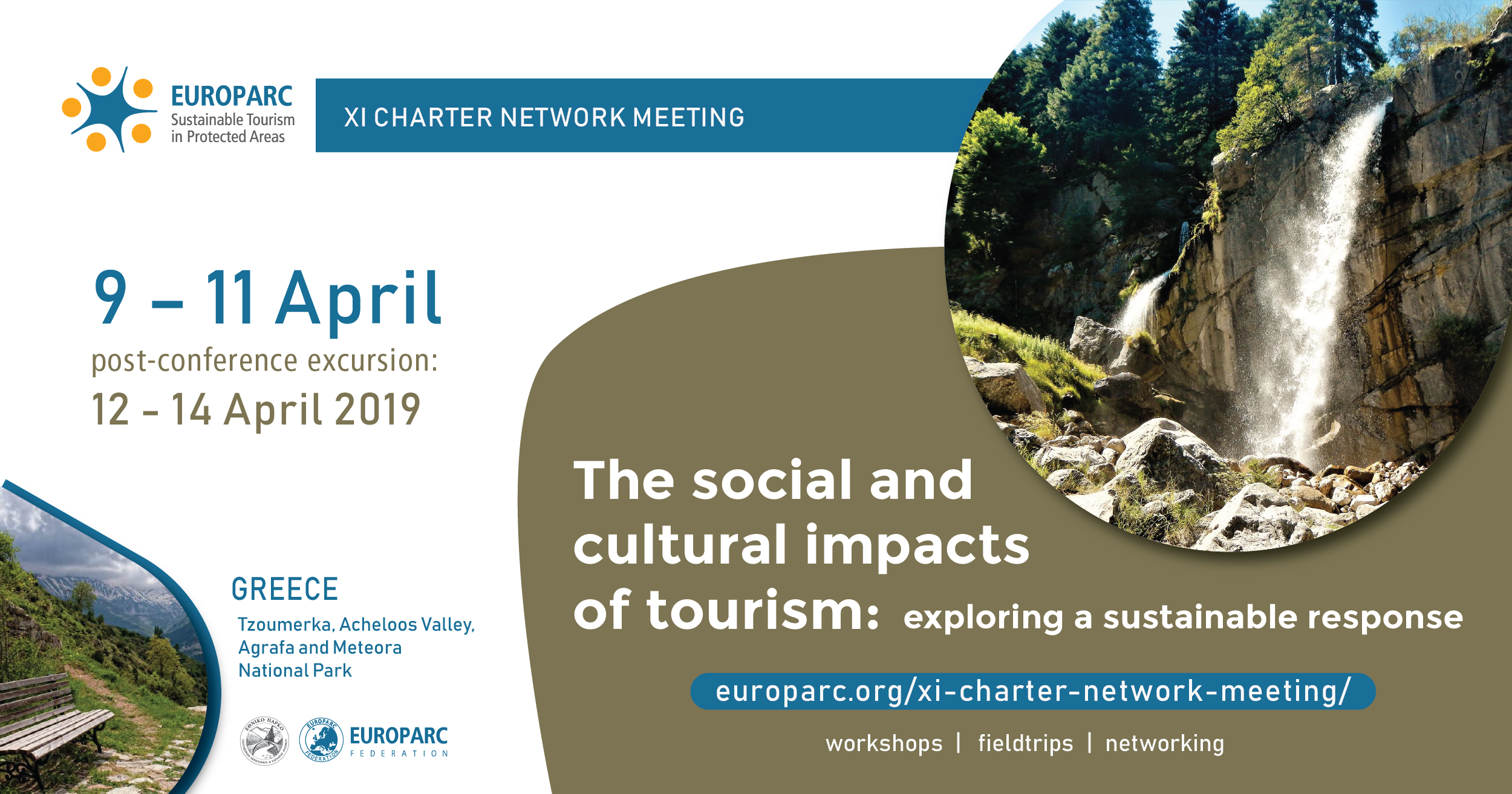
With tourism growing at an unprecedented rate all over Europe, and with the tourism industry currently accounting for over 10% of Europe’s GDP, there are numerous challenges arising in over-visited destinations. One of the invited key speakers will share their experience in managing visitors in one of the most visited parks of Italy, the 5 Terre National Park.
If sustainably managed, tourism has the potential to promote social development through employment creation, economic activities and even strengthen communities through the reaffirmation of culture, tradition, and values. Sofia Pachini from the European Commission- DG Environment will speak about opportunities for sustainable tourism embracing natural and cultural heritage in nature protected areas, and a young entrepreneur will share his success story in building up a tourism business based on the principles of eco and sustainable tourism.

Tzoumerka
While keynote speakers will bring expert consideration of the social and cultural impacts of tourism on communities, practical workshops will give participants the possibility to learn new competences. Storytelling, setting up touristic packages that work, and managing visitor flows in destinations are some of the topics that will be covered in the workshops.
Participation is open to all professionals working for Protected Areas, but also to tourism entrepreneurs and tour agencies working in sustainable tourism. The participation fee is 70€ for EUROPARC members and enterprises working in EUROPARC Sustainable Destinations, and 90€ for non – members.
There will be several networking opportunities, and a full day field trip to discover the Tzoumerka, Acheloos Valley, Agrafa and Meteora National Park. Registrations are open.
>>>>Register here<<<<
If you need any further information you will get them here. You can also download or take a look at the complete agenda here.
Agenda_Charter Network Meeting 2019
The European Charter for Sustainable Tourism in Protected Areas, is a practical management tool implemented in over 100 nature protected areas across Europe. Through a strong participatory process, Protected Areas become EUROPARC Sustainable Destinations: delivering social, economic and environmental benefits to the area, in a way that preserves the existing culture, allowing growth and development.
More information about the European Charter for Sustainable Tourism at: www.europarc.org/sustainable-tourism.
Environmental organisations urge Council of Europe to maintain Bern Convention budget
Ahead of crucial debates on the financing of the Bern Convention, European NGOs have addressed a letter to the Secretary General of the Council of Europe urging it to ensure the financing and proper functioning of the Bern Convention – the Convention on the Conservation of European Wildlife and Natural Habitats.
Facing difficult financial times, the Council of Europe is considering budgetary cuts that inevitably would reduce the Bern Convention’s operations. In their letter, the NGOs reiterate that the Treaty directly benefits Europe’s nature and protected species and are asking decision makers to continue to financially support the Convention.
The Bern Convention
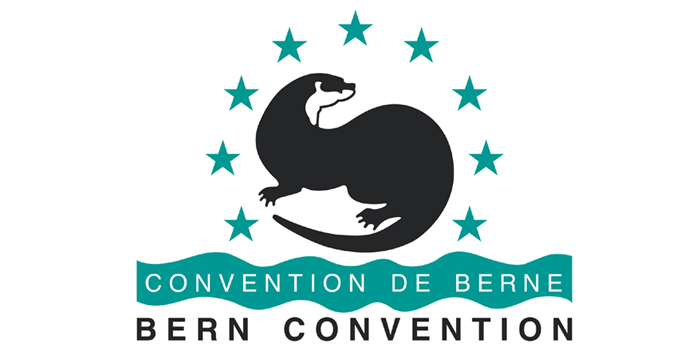
Bern Convention
The Bern Convention aims to ensure conservation of wild flora and fauna and their habitats, affording urgently needed protection to Europe’s’ most threatened species and habitats. Encompassing all countries in the European continent, extending to the Mediterranean region, and including both members and non-members of the European Union, the Bern Convention forms the foremost binding international legal instrument in the field of Nature Conservation in the European region.
On the occasion of the 40th anniversary of the adoption of the Bern Convention, the NGOs call on the Council of Europe and the member countries not to cut down on environment spending and to maintain the Convention’s budget, and especially its compliance system.
Convention’s “Case File system”
The environmental organizations especially emphasize the value of the Convention’s “Case File system”, an open and democratic compliance mechanism that is unparalleled among international treaties. Through this valuable instrument, the public and civil society can raise attention to possible breaches of the Convention, and bring environmental problems in their countries to the international level for discussion. The Convention’s member states can then decide to monitor the issue and adopt Recommendations to urge governments to accelerate conservation efforts. In their letter, the NGOs showcase examples where the system has achieved substantial and tangible improvements.
At a time when numerous achievements have been accomplished, but countless environmental problems still remain, the Bern Convention is an essential tool to preserve Europe’s wildlife and natural heritage for the next generations. It is therefore paramount that the necessary financial means remain at the Convention’s disposal.
Documents:
1. NGO Letter toSecretary General of the Council of Europe
2. About the Bern Convention
3. About the Bern Convention Case File System
4. About the Bern Convention Budgetary issues:
– T-PVS(2018) 6. Concept Paper on the financial mechanism of the Bern Convention.
– T-PVS(2018)15. Additional discussion paper on Agenda item 3.1.
– T-PVS(2018)Misc. List of decisions and adopted texts.